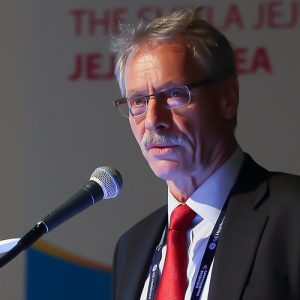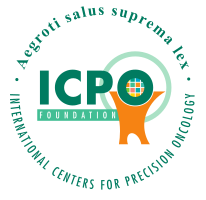Prof. Frank Rösch

Frank Rösch retired in 2021 from a professorship at the Institute of Nuclear Chemistry, Johannes Gutenberg-University Mainz, Mainz, Germany.
His scientific focus is on physico-chemistry, radiochemistry and radiopharmaceutical chemistry of metallic radionuclides and their compounds in diagnostic and therapeutic application. This covers isotope production including cross sections for different nuclear reaction pathways, and radiochemical separations. The latter included new metallic positron emitters such as 86Y, 94mTc, 110mIn, 52Mn and others, intended to bridge endo-radiotherapy or SPECT with analogous PET-tracers.
Between 1995-2005 he investigated radionuclide generator systems and reactor-based nuclear reactions leading to no-carrier-added products with potential for therapeutic applications, such as 90Sr/90Y or 188W(tungsten)/188Re and the 176Yb─177Lu pathway.
Since 2000, his research covers new radionuclide generator systems, providing positron emitting daughter radionuclides, such as 68Ge/68Ga and 44Titanium/44Scandium. He has studied systematically all aspects of these generators including the synthesis of new chelates for 68Ga and the development and evaluation of new 68Ga radiopharmaceuticals such as macrocyclic bisphosphonates. In this context, AAZTA-based chimeric chelators are a current focus, as they allow to label radiopharmaceuticals in an “instant-kit” type protocol – in analogy to the 99mTc-radiopharmaceuticals.
In parallel, Professor Rösch’s group has focused on 18F-chemistry directed to the synthesis and biological evaluation of 18F-labelled tracers for studying the human brain and imaging the dopamine transporter and the serotonin receptor system. He is editor and author of major handbooks and teaching books on nuclear radiochemistry. Professor Rösch has been a close collaborator of Professor Richard Baum for over 20 years and he has been recently nominated for the prestigious George Hevesy Medal Award.

